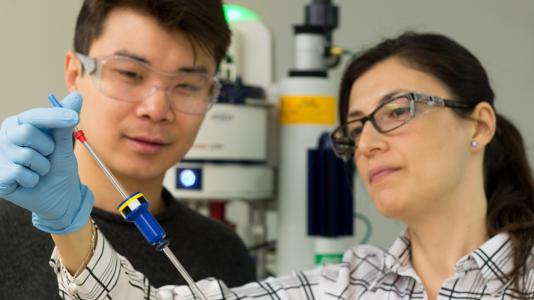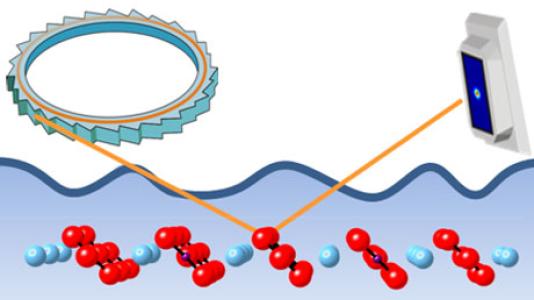
Argonne National Laboratory researchers have invented a technology for recovering oil and other petroleum products from bodies of water that surpasses similar technologies that are currently on the market in several key aspects.
Water contamination from oil and other petroleum products carries with it huge environmental, economic and health impacts. Argonne’s invention, known as Oleo Sponge, offers promise for dramatically improving our ability to combat this problem – whether it be a catastrophic oil spill that devastates the Gulf Coast of the United States or chronic issues with contamination in harbors and ports around the world.
Oleo Sponge offers multiple critical advantages over current industry-standard technologies:
- The technology is the first and only option to effectively and efficiently adsorb oil and other petroleum products below the water surface. Current industry-standard technologies only address the surface.
- Oleo Sponge is reusable (you simply wring the reclaimed oil into a holding tank). This dramatically reduces waste resulting from the clean-up process and enables a small amount of adsorbent to mitigate enormous spills. Current sorbent technologies soak up oil in a single use, and the oil-saturated materials must then be disposed of.
- Oleo Sponge is environmentally friendly – doing no harm to sea life, animals or the larger environment – a key advantage when compared with chemical dispersants or burning techniques that are used today.
- Oleo Sponge demonstrates unparalleled sorption performance.
- The oil and other petroleum products that are recovered by Oleo Sponge can be salvaged for future use.

